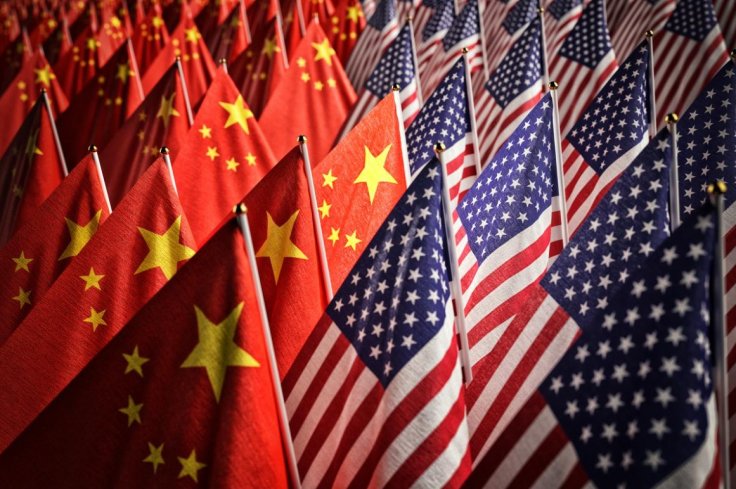U.S. stocks rallied on Monday after the U.S. and China agreed to slash tariffs temporarily after reaching a trade deal following negotiations over the weekend in Switzerland, raising hopes that the trade tensions will ease and the economy will avoid slipping into a recession. All the three major indexes ended sharply higher.
The Dow Jones Industrial Average jumped by 1,160.72 points, or 2.8%, finishing at 42,410.10. The S&P 500 rose 3.26% to close at 5,844.19. The index has climbed more than 20% since hitting its lowest point in April during peak concerns over tariffs. As a result, its losses for the year have now been narrowed to a meager 0.6%.
Trade War Fears Ease

The Nasdaq Composite rose by 4.35% to end at 18,708.34, as news of an initial agreement between the U.S. and China gave a boost to the shares of tech companies with strong ties to China, such as Tesla and Apple. It marked the best trading day for all three major indexes since April 9.
On Monday, the U.S. and China revealed that they would temporarily slash the heavy tariffs on each other's goods for a 90-day period. The U.S. plans to cut its tariffs on Chinese imports from 145% to 30%, while China announced a reduction in tariffs on American goods from 125% to 10%.
The announcement prompted investors to shift toward riskier assets and pull back from more defensive best. However, uncertainty remained about the long-term direction of the tariff policy.
U.S. stocks suffered steep losses and unusually high market swings after Trump announced tariffs targeting several American trade partners on April 2.
However, since the April 9 announcement of a 90-day pause on tariffs for nations other than China, along with strong corporate earnings and last week's limited trade deal between the U.S. and the U.K., both the S&P 500 and the tech-focused Nasdaq have recovered much of their earlier losses.
Markets Making Gradual Recovery

Investors placed their bets during the market rebound that the administration would successfully reach trade deals within the next three months — including one with China — and that prediction has begun to come true.
After last week's announcement of a trade framework between the U.S. and the U.K., this week brought a preliminary agreement with China that exceeded traders' expectations.
Trump had hinted that if negotiations progressed positively, tariffs on China could be reduced to 80%, and there were even discussions of a possible 60% rate — both well above the 30% rate ultimately agreed upon during the intense weekend talks.
However, he cautioned on Monday that a final deal with Beijing would still take time to complete.
Treasury yields surged as the agreement with China eased concerns about an impending recession, at least for the time being. It also made it less likely that the Federal Reserve would lower interest rates in the near future. Additionally, oil prices climbed as recession worries began to fade.









